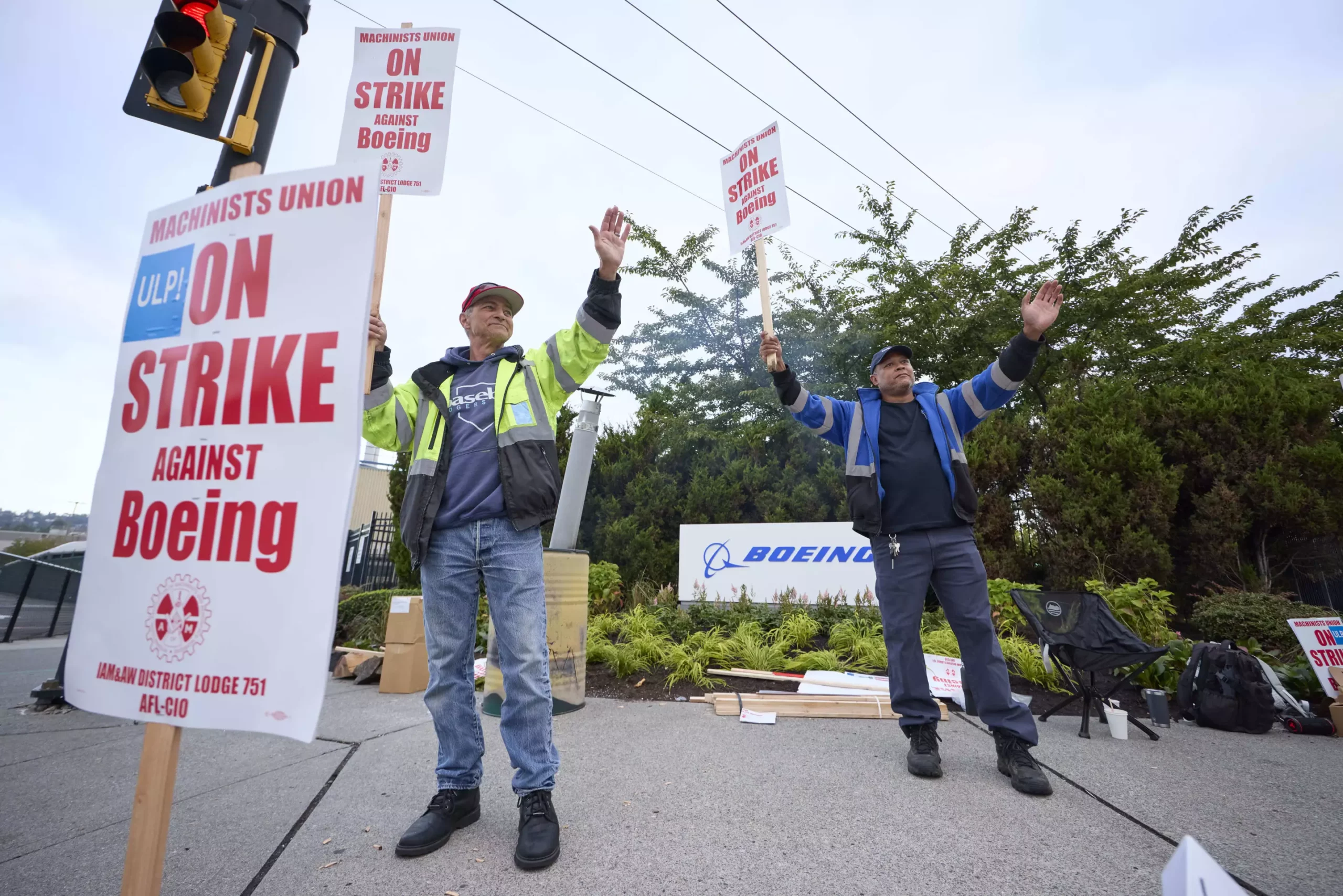On a ground-breaking day for labor relations in the aerospace industry, approximately 33,000 blue-collar machinists at Boeing initiated a strike after significantly rejecting a proposed contract. The situation emerged out of frustration with a deal that suggested a 25% wage increase across four years, which the union members deemed inadequate given the rising cost of living in the Pacific Northwest. While the strike will not immediately disrupt airline operations, it is poised to halt the production of Boeing’s top-selling aircraft, compounding the structural issues already plaguing the organization. This labor action arrives as Boeing grapples with a staggering loss of nearly $25 billion in recent years and a substantial decline in stock value, which an ongoing strike is likely to exacerbate.
Various factors contributed to the machinists’ dissatisfaction with the proposed contract. Many workers expressed that the wage increase does not align with the reality of inflation and economic pressure. A striking worker highlighted that his own income had only risen by a meager 2% over six years, which starkly contrasts with current living expenses, particularly housing prices. With the cost of living soaring, especially in cities like Renton, where Boeing’s facilities are located, the workforce’s anger is directed at what they perceive as an outdated and insufficient wage agreement that does not factor in the current economic climate.
Additionally, aspects of the contract concerning bonuses and healthcare contributions stirred frustration among workers. While Boeing promised some increases in employee financial benefits, it failed to meet crucial demands such as a more substantial pay increase and the reinstatement of traditional pensions. The union had initially sought a 40% wage increase over three years and a return to secured pension plans, but ultimately agreed only on increased contributions to 401(k) plans. These perceived concessions have added fuel to the fire of anger and mistrust.
In light of the strike, Boeing’s management, led by new CEO Kelly Ortberg, has signaled a readiness to renegotiate with the union. The company itself remains under immense financial pressure—total debts are reported at approximately $60 billion, while recent figures reveal a nearly 40% drop in stock value. During a financial conference, CFO Brian West expressed disappointment regarding the rejection of the proposed contract, identifying the rift between union leadership and rank-and-file members as a critical challenge to recover from.
The financial implications of the strike are substantial. Boeing is poised to lose significant cash flows because airlines typically pay the bulk of their aircraft’s purchase price upon delivery. With production expected to lag, the urgency for Boeing to reach an agreement with the union cannot be overstated. Prior to the strike, meetings between employees and management indicated an attempt to gather frontline worker feedback. However, the rejection of the deal signals that the company may have underestimated the workforce’s grievances—an oversight that could prove damaging in their recovery efforts.
This strike is not the first for Boeing; labor disputes are emblematic of bigger tensions within the company that stretches back decades. The last significant strike in 2008 lasted eight weeks and cost the company upwards of $100 million in deferred revenues each day. Historical comparisons indicate that the current strike could be similarly lengthy and financially damaging, potentially costing Boeing billions if the deadlock persists.
Union leaders, such as IAM District 751 President Jon Holden, are determined to ensure that the workers’ voices are heard in negotiations going forward. The sentiment expressed by the machinists resonates with broader themes of respect, recognition, and economic justice in today’s workforce. As labor movements are reenergized across various industries, the fate of this strike could set a significant precedent for future negotiations between large corporations and their workers.
As Boeing navigates these turbulent waters, the strike highlights an urgent need for meaningful dialogue between management and workers. The dissatisfaction pervasive in the machinists’ ranks serves as a cautionary tale about the risks of neglecting employee concerns in pursuit of corporate profitability. Ultimately, this strike may not only impact Boeing’s immediate financial outlook but could redefine how labor relations are conducted in the aerospace industry—an industry that stands on the precipice of change amid shifting economic realities and worker expectations. The coming weeks will truly test not only the resilience of the company but also the resolve of its workforce in seeking fairness and equity.

